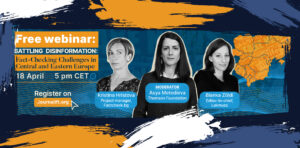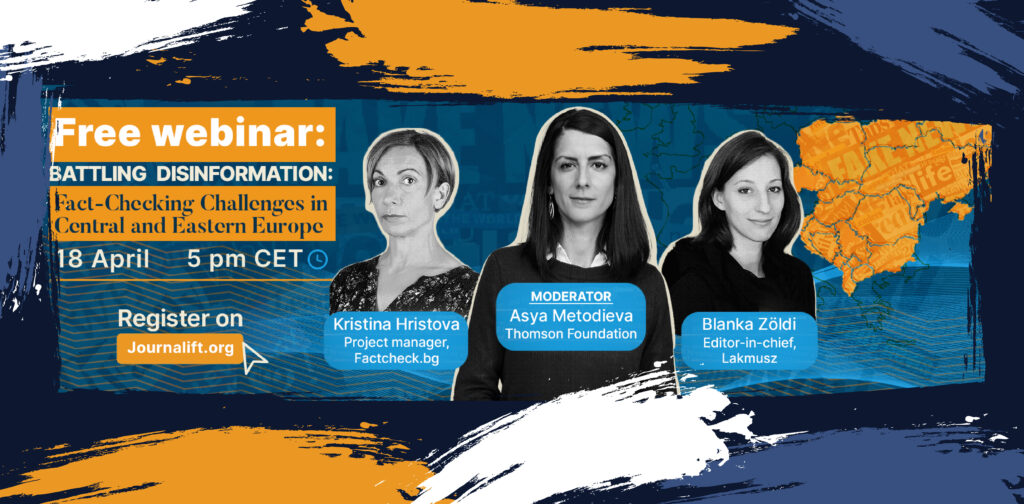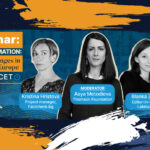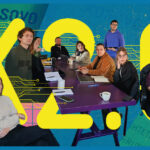Media and information literacy (MIL) is essential to enable citizens’ ability to think critically and click wisely. As UNESCO puts it: “Media and information literacy is an interrelated set of competencies that help people to maximize advantages and minimize harm in the new information, digital and communication landscapes” (MIL definition). This article argues that in addition to policymakers, civil society and educational institutions, media outlets are vital to the media and information literacy. This is particularly relevant in the Western Balkans, whereby information disorder has become a concerning phenomenon in the media and information landscape (European Parliament Study 2021).
Media and information literacy is essential for citizens of all ages and backgrounds to develop their knowledge and competencies in effectively engaging with a wide range of information and diversity of media content.
It is also vital for the discerning use of digital technologies. More broadly, MIL is a necessary tool for citizens' informed and active participation in the governance and decision-making processes at different levels.
UNESCO argues that media and information literacy for all should be seen as a nexus of human rights and, as such, proposes five universal laws of MIL, as visualized in the following picture. This approach draws from the crucial role of information and media in all aspects of life. It is embedded in the freedom of expression and information principles because MIL empowers citizens to understand the media ecosystem, critically assess information and content and make informed decisions as users and producers of content.

*Source: UNESCO, 5 Laws of Media and Information Literacy
In addition, European Union has turned its attention towards media literacy and the recently revised Audiovisual Media Services Directive (AVMSD) strengthens the role of media literacy. It requires Member States to promote measures that develop media literacy skills (Article 33a). Also, it obliges video-sharing platforms to provide effective media literacy measures and tools. This is a crucial requirement due to the central role such platforms play in giving access to audiovisual content. Platforms are also required to raise users’ awareness of these measures and tools (Article 28b).
Another measure of the European Commission is the Media literacy expert group, which meets annually and brings media literacy stakeholders together. In addition, viewing media literacy as a prerequisite for a vibrant democracy, the European Commission organised the European Media Literacy Week to promote media literacy skills and projects across the EU (European Media Literacy Week 2022).
Furthermore, the Council of Europe views media and information literacy as of utmost importance that brings together three distinct dimensions: Information Literacy, Media Literacy, along with ICT and Digital Literacy (Council of Europe). The Council of Europe has taken a two-fold approach to MIL: (a) setting MIL within institutional frameworks aimed at states, policymakers as well as a range of other public and private actors with competencies to participate and cooperate within a fast-evolving digital environment; (b) provide tools for empowering individual media users of all ages and walks of life (more here).
The South East European Network for Professionalisation of Media (SEENPM) has been working in the Western Balkans with the support of the European Union to the advancement of media and information literacy at a regional level. Their recent research study on MIL in the Western Balkans shows that media and information literacy is not explicitly, transparently or continuously included as a goal in policy documents, public policies or legislation in the region. However, policymakers are placing more and more attention towards MIL lately and there are initiatives to introduce MIL classes in the education system at all levels and as part of life-long learning (for example, Building Trust in Media in South East Europe and Turkey or You Think IREX project in North Macedonia or Teach and learn media and information literacy in the Western Balkans).
While civil society organisations are pioneers working to advance MIL in the region, the media could be a more active player in the promotion of media and information literacy in the region (more here). The same study argues that “even when they do show interest, this happens most often through media associations and self-regulatory bodies” (more here). Higher expectations are placed on public service media in the region to address MIL given that educating citizens is an integral part of their remit. For instance in Albania, RTSH broadcasts dedicated shows to media literacy, digital literacy and provides space for the promotion of MIL projects. Also, Macedonian Radio and Television began producing and broadcasting a media literacy educational serial for young people and the wider public in 2018 (more here).

Traditionally, television has frequently been seen as a source of formal and informal learning. More generally, media, including television, exerts an important educational function with broad outreach in society even though media organizations do not typically conceive of themselves as educators (more here). In this light, media organisations committed to quality journalism can do more when it comes to media and information literacy and empowering citizens through MIL. For instance, media outlets can support MIL outcomes by increasing consumer demand for quality media products and services, producing creative content that helps citizens understand media and information better, engaging with stakeholders such as education and civil society sectors and providing space for MIL promotion and programmes.
However, media and information literacy is a moving target as Sonia Livingstone argues because “as society becomes more dependent on the media, the media are becoming more complex, fast-changing, commercial and globalised”. In this sense, the engagement of media outlets in MIL requires strategic planning and continuous attention, resources, and commitment. This can be proven particularly challenging for local media considering their constraints in terms of financial resilience.
Also, the knowledge and skills gap in terms of MIL cannot be filled only by media outlets, it requires a multistakeholder and collaborative approach that includes policymakers, civil society, education, business, and media. MIL is a long-term investment, and it does not provide a universal solution to the information disorder phenomena. It is part of the puzzle towards empowered and well-informed citizens.































